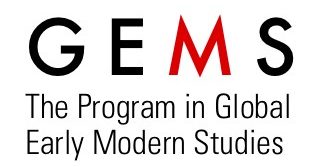Due Feb. 15 | CFA Middle French Paleography Workshop Columbia University June 6-24, 2016
Call for Applications
MIDDLE FRENCH PALEOGRAPHY WORKSHOP
Columbia University in the City of New York
JUNE 6-24, 2016
This paleography workshop will provide intensive training in the accurate reading, editing, and interpretation of a manuscript in Middle French, in this case a complex and intriguing late-Renaissance compilation of a practical and proto-scientific nature. Participants will gain paleographic skills in middle French as they collaborate on revising, correcting, and making consistent a transcription and translation of this manuscript. The workshop will provide an introduction to new digital tools and methods, including markup language and data visualization techniques, and participants will work to correct markup on the existing transcription and translation.
The manuscript, Bibliothèque nationale de France, fr. 640, probably written around 1580 by an anonymous French-speaking craftsperson, covers some 170 folios with detailed instructions, including first-hand observations and illustrations, for a number of processes that we would now classify as part of fine arts and technology, such as drawing-instruction, pigment-making, metal-coloring, counterfeit gem production, cannon-casting, tree-grafting, land-surveying, a practice of taxidermy to manufacture monstrous composite animals (kittens and bats), making papier mâché masks, and much more. The margins are filled with comments on experiments, an indication that the text was most likely a record of practice. The manuscript thus offers exceptional insight into how natural materials and art objects were made, collected, appreciated, and circulated in the late Renaissance.
The workshop, directed by Prof. Marc H. Smith (École nationale des chartes/École pratique des hautes études) and Prof. Pamela H. Smith (History, Columbia University) is part of a larger interdisciplinary research and pedagogical initiative, The Making and Knowing Project, housed in Columbia’s new Center for Science and Society. The Making and Knowing Project supports the transcription, translation, annotation, and experimental reconstruction of the technical processes described in the manuscript in order to publish an open access critical edition and English translation of the manuscript.
The three-week course, held on the campus of Columbia University, will begin with general instruction and bibliographical information concerning the historical context of the manuscript, French Renaissance paleography, Middle French, and principles for transcription and translation, as well as instruction in digital methods, such as collaborative editing, annotation and versioning methods, and text encoding markup. Then, for five days a week, sessions will be devoted to reading, correcting, annotating, and making consistent the work of previous participants, working groups.
Up to 15 participants will be enrolled from the U.S. and abroad. The workshop is offered tuition free. Advanced French-language skills are required. First consideration is given to PhD students, but applications will also be accepted from professional staff of libraries and museums, and from qualified independent scholars. The workshop expects to be able to provide partial financial support to selected PhD applicants to help defray the costs of travel and accommodation.
Applicants should submit a CV containing names and addresses of two references, no more than three pages explaining their reason for application (including the relevance of the workshop to their dissertation research), and transcripts showing successful completion of coursework or other evidence of competence in the French language. Experience and interest in the digital humanities will be an advantage.
Applications, along with supporting documents, should be emailed to Naomi Rosenkranz (njr2128@columbia.edu) byFebruary 15, 2016, by midnight EST. Inquiries should be directed to the same address. Successful applicants will be notified by the end of March.



